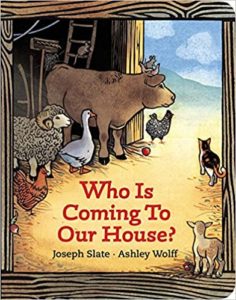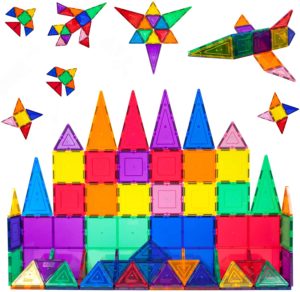
Sign in
Don't have an account with us? Sign up using the form below and get some free bonuses!

"Is Santa real?" With that simple question from my child, my heart drops. On one hand, I always and unequivocally want to be honest. On the other, I want to preserve the innocence and magic of childhood.
I sometimes wonder whether my child already knows the answer and is just checking whether I'm being truthful about it. I also wonder whether she wants proof that he really IS real because she sincerely wants to believe in Santa Claus. Both options co-exist in my thoughts as I consider how to respond. Thoughtfully. Carefully.

"Is Santa real" is one of the most loaded questions of parenting. If we answer that he's not, it's the end of a certain kind of innocence; a little bit of childhood traded in favor of one step closer to adulthood.
Stories of Santa Claus, otherwise known as Kris Kringle and Saint Nicholas, have circulated around the world for hundreds of years. Were all those generations of parents wrong?
Believing in Santa is a wonderfully pure part of childhood. At the same

time, as part of truly respectful parenting, we wonder if we should be upfront with our children about Santa and Mrs. Claus, the North Pole, reindeer, elves, and all things jolly-Christmas. Certainly most kids believe -- but should mine, too?
Early on, I decided that I didn't want to mislead my child. Although I'd loved the magic of Christmas when I was little, I wanted my relationship with my daughter to be based on honesty and transparency about everything. No exceptions -- just straight-up loving and gentle truthfulness.
Therefore, I decided I didn't want to tell her about Santa. We'd just do our "thing" every December, celebrating the true meaning of Christmas for our family, and that would suffice. We'd navigate the trickier waters as she grew older.

My husband and extended family weren't on board with that, however. They wanted her to know Santa; to love him, like we all did when we were children. Truth be told, I have fond memories of sitting on the sofa next to the Christmas tree, staring at my empty fireplace, wondering if I'd be witness to Santa's appearance.
I liked putting out a bowl of sugar and some carrots for the reindeer, and adding some sugar cookies for the guest of honor. It was fun to see the reindeers' "nose prints" in the sugar the following morning and the cookie crumbs upon the plate.
Remembering these things, I altered my plan.
I decided we'd wing it year by year. We'd also be intentional about which parts we'd "wing," however.
When my daughter was very little, I started engaging her in "being" a Santa Claus for someone else. To be clear, I never flat-out told her that Santa wasn't real. I simply didn't comment one way or the other, and "playing" Santa Claus for others seemed like a good way to gently and oh-so-gradually clue her in while helping her learn the importance of doing good deeds for others.
With this approach, starting when she was about two and every year thereafter, we'd pick strangers for whom we'd plan to do a random act of kindness -- an elderly neighbor, someone requesting a donation of food or supplies -- and then we'd follow through in helping that person somehow. I called it "being a Santa" and explained it as the goodness of doing acts of service for others without expecting anything in return.

At that age, she never questioned whether Santa was real. She simply went along with it.
As she got to the next Christmas, other well-meaning family members started telling her the story of Santa. Whether they played music like "Santa Claus is Coming to Town" for her, wrote his name as the giver of gifts, or simply asked her whether Santa had gotten her anything after the fact, suddenly, he was very much alive in her consciousness.
Of course, she started asking me about him. Children are great at intuiting the very questions we'd prefer they not ask us directly.
With bright eyes and great enthusiasm behind her question, she made it very clear that she wanted Santa to be real. The magic of Christmas was important to her in this way. I didn't "feed" her belief by talking about him, but I welcomed the joy she found in him.
I treated him like another beautiful decoration to behold on the mantle -- something we acknowledge, but that we wouldn't spend a lot of time admiring.
Around that time, I decided to follow her lead. I wouldn't tell her he didn't exist, but I also wouldn't tell her that he did.
Is a non-answer a lie? I don't think so, in this case. Like all questions from kids, there's a time and place when they're ready to know certain things. For me, "Is Santa real" falls into this category.
When she put me on the spot, I'd turn it around and ask what she thought. She always confirmed that he was, indeed, alive and well, living contentedly at the North Pole. I'd smile in response; perhaps give her a kiss. Sometimes, I'd talk about how wonderful it is to be a Santa. (There it is again.)
Santa Claus comes no matter what. Period. As part of gentle parenting, her behavior has nothing to do whether Santa will come via reindeer to our

rooftop on Christmas Eve. There's no discussion of naughty or nice. We never talk about coal in the stocking or any of the other popular threats parents use.
Santa simply visits because my child is a child. That's the only prerequisite.
Needless to say, Santa doesn't judge others' behavior, either. It's not part of his schtick. He's entirely benevolent.
If other well-meaning parents or other people say to my child, "Were you a good girl this year?" I'm quick to respond on her behalf, "Of course! Santa has nothing to do with that. She's a great kid." End of story.
We minimize the focus on Santa by limiting the number of presents from him. Granted, we're not a present-focused family, anyway; commercialism isn't our "thing." Still, Santa may leave her gifts in her stocking and the rest are up to Mommy and Daddy. Or, Santa may give her a couple of small-ish gifts under the Christmas tree, but the ones about which she'll get most excited are not from him.
And then we move on joyfully together. She's never questioned the quantity of quality of Santa's gifts.
I know because honesty worked for the Easter Bunny. He was my litmus test. My child figured out years ago that Mommy and Daddy are really the Easter Bunny, and when we had the discussion in the way that we did, she was absolutely fine with it. A large part of her ongoing trust in us is that we were honest with her when she was ready for the full story.
We didn't need to overcomplicate things by talking her out of that which she'd discovered for herself.
Somehow, she still hasn't made the connection between the Easter Bunny and Santa Claus, even though it's been two years since she learned about the bunny. So, just because some magic changes, it doesn't necessarily disappear all at once. It can be a gradual process. I felt relieved to learn this.
I've seen the truth work time and time again. It's part of how I've become my child's "safe place" emotionally. When she asks, "Is Santa real?" I want my answer about this topic to be no exception. If I'm going to be her emotional rock throughout her life, these are the very details that matter.
I've had to do some backtracking when my child focused more on the Santa piece than what made me comfortable. So, I get it.
If Santa is already part of your December narrative, you can focus more on how good it feels to be a Santa for others. You can give Kris Kringle a smaller role this year, even if he's still present for your kids. You choose where you put your focus.
You're not spoiling it for your children if they do want to believe, and you're ingraining in them that they can do good works for others.
You can promote the spirit of Christmas for exactly what it is. Know what and why you and your kids are celebrating. There's a good message there; and one they can carry with them forever.
They'll figure it out when they're ready. And if you choose never to do the Santa thing, that works, too (just let children know that when other kids ask them, "Is Santa real?" -- it would be best if they refer them to their family for the answer). It's important that kids understand and respect family differences; you're modeling that for them. Christmas means different things to different people.
I know this for sure, though -- I am glad Santa exists. Because he does, in the goodness that's all around us every year. Children see it clearly. I do my best to see it, too.
*
"Is Santa real?" also coming soon as a mini-course. Check out our current offerings and choose one free course from more than 40 topics.